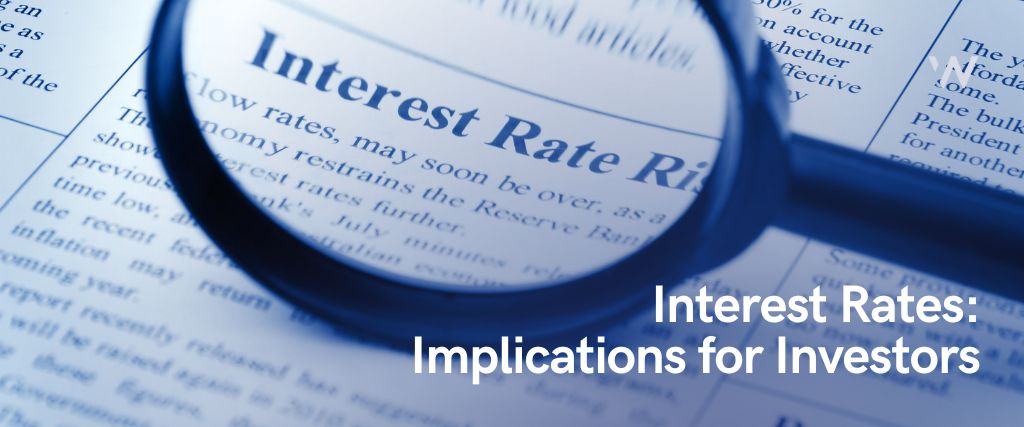The Power of Socially Responsible Investing
What is Socially Responsible Investing?
Socially Responsible Investing (SRI) is a form of investing that primarily considers both financial return and a social/environmental good to bring about a positive change. It's an investment strategy that prioritizes not only the potential for financial return but also the social and environmental impact of the investment.
Fundamentally, it's about investing your money in companies that align with your ethical standards. For instance, if you're concerned about the environment, you may invest in companies prioritizing sustainability in their practices and product offerings. Alternatively, you may avoid stocks and companies involved in industries you believe have a negative social impact, such as tobacco or firearms.
In recent years, this form of investment has gained significant attention and traction, and a new set of standards, known as ESG (Environmental, Social, and Governance) criteria, has emerged. These standards allow investors to evaluate companies they want to invest in based on their commitment to these socially responsible principles.
Socially Responsible Investors adopting SRI strategies believe these criteria can help generate competitive financial returns and contribute to developing a more sustainable global economy.
The Rise of Socially Responsible Investing
Socially Responsible Investing is not entirely new, with its roots traceable back over a century when religious groups in the US forbid members from participating in trades they saw as intolerable. In the modern context, however, the rise of SRI began to gain momentum during the tumultuous 1960s, when societal norms were being challenged, and investors started to consider the ethical implications of their financial decisions.
In the 1970s, the focus of SRI shifted towards issues like workers' rights and environmental conservation, reflecting the time's broader social and political climate. The first 'green' fund, the Pax World Fund, was launched in 1971, filtering out companies involved in the Vietnam War. This marked a significant step in the evolution of SRI, with the emergence of sustainable mutual funds that allowed individual investors to invest responsibly.

The 1980s and 1990s saw further development in SRI, encompassing issues like apartheid in South Africa, nuclear power, and tobacco. The creation of ESG criteria in the early 2000s provided a more structured and standardized approach to evaluating companies on their social responsibility.
Responsible investing has become mainstream today, fueled by a growing awareness of the impact businesses can have on society, particularly the environment. The shift towards sustainability, backed by a more informed and conscientious investor base, is driving companies to become more transparent about their practices and commit to responsible business behaviors.
In essence, the history of SRI illuminates a shift in investor sentiment from focusing solely on financial returns to considering the broader impact of sustainable investments. It underscores the growing recognition that our financial decisions can, and indeed should, align with our ethical values and contribute to societal well-being.
The Importance of Sustainability in Investment
Sustainability in investment is no longer a niche approach but a vital component of sound investing. It hinges on the idea that companies prioritizing environmental, social, and governance (ESG) factors are more likely to be resilient and prosperous in the long term. When a company emphasizes sustainability, it not only positively impacts society and the environment, but it's expected to reduce risk and drive performance in its investment portfolio.
Companies that fail to account for sustainability issues may face various risks, from reputational damage to regulatory fines. Conversely, successfully managing these concerns can improve operational efficiencies, promote innovation, and build stronger relationships with stakeholders, positively impacting their financial performance. This is why many investors are integrating ESG factors into their investment decision-making processes.
Moreover, sustainable investing can align an investor's portfolio with their values and societal goals, such as combating climate change or promoting social equity. This alignment can offer investors a sense of purpose and fulfillment, knowing that their SRI investments contribute to positive societal change. It's not just about financial returns anymore; it's about making a difference.

Understanding ESG Factors in Investment
Environmental, Social, and Governance (ESG) factors have become integral to assessing companies' ethical impact and sustainable investment potential. These factors provide investors with a comprehensive framework to evaluate potential risks and opportunities beyond the traditional financial metrics.
The "E" in ESG stands for Environment. This considers how a company's operations impact the natural environment. It includes factors such as a company's energy use, waste, pollution, natural resource conservation, and treatment of animals. Companies with vital environmental considerations have strategies to minimize their carbon footprint, comply with environmental regulations, and harness sustainable practices. Environmental responsibility carries significant weight in an era where climate change is a considerable concern.
The "S" stands for Social. This assesses the company's relationships with its employees, suppliers, customers, and communities. Factors such as labor practices, diversity, human rights, consumer protection, and community development fall into this category. Essentially, it evaluates how a company manages relationships with its societal stakeholders.
The "G" in ESG stands for Governance. This involves a company's leadership, executive pay, audits, internal controls, and shareholder rights. It also examines the company's culture, ethics, and issues in managing conflicts of interest. Good governance ensures that companies are run responsibly, with accountability and transparency.
ESG factors are relevant because they offer a more holistic view of a company's performance, potential, and risk profile. They provide non-financial indicators that can influence a company's financial performance. For instance, a company with poor governance practices may face legal penalties, and those with poor environmental practices may face regulatory fines or reputational damage, all of which can impact profitability. By considering ESG factors, investors can make more informed decisions that align with their financial goals and ethical values.

The Different Forms of Socially Responsible Investing
Environmental Investing: Green Bonds and Renewable Energy
There is a rising demand for investment opportunities with a positive environmental impact, and Environmental Investing aims to meet this need. This form of investing focuses on injecting capital into projects and companies committed to conserving natural resources, producing renewable energy, implementing clean air and water projects, and other activities promoting environmental sustainability.
Green Bonds are a notable instrument in environmental investing. They are fixed-income securities, with the unique characteristic that the proceeds from these bonds are exclusively used for financing "green" environmentally friendly projects—these range from renewable energy projects to clean transportation and climate change adaptation initiatives. Green Bonds are gaining traction as they offer investors a tangible and transparent way to contribute to environmentally sustainable initiatives while achieving financial returns.
Renewable Energy investing is another significant aspect of environmental investing. This involves investing in companies that produce energy from renewable sources such as wind, solar, hydroelectric, and bioenergy. As the world grapples with the effects of climate change, there's an escalating shift from fossil fuels to renewable energy sources, making this sector a potentially lucrative and sustainable investment avenue. Renewable energy companies are making remarkable strides in innovation and efficiency, and investing in these companies not only supports a greener future but also positions investors to benefit from this growing industry.

Environmental investing allows investors to earn a return on their investments while promoting a more sustainable future. Investors can contribute to the fight against climate change and other environmental challenges by considering investments in green bonds and renewable energy.
Social Investing: Supporting Fair Trade and Human Rights
Investing with a social focus, particularly in Fair Trade and Human Rights, is another powerful way to drive change through investment decisions. When investors put their money into businesses that prioritize fair trade, they support the establishment of ethical supply chains that respect labor rights and promote equitable trading conditions. This means fair pay and working conditions for farmers and producers, especially those in developing countries. Investments in fair trade create a ripple effect, promoting economic growth in disadvantaged communities and contributing to the fight against poverty.
Human rights, a fundamental principle for social investing, also deserves consideration. Investments can either support human rights or perpetuate their violation, depending on the practices of the companies invested in. Investors communicate their values and expectations by putting their capital behind businesses that respect and uphold human rights. They create a business environment where discrimination, exploitation, and abuse are not tolerated. Furthermore, companies that respect human rights tend to have healthier relationships with their employees, suppliers, and customers, leading to more sustainable operations and, consequently, better long-term investment returns.

Socially focused investing in fair trade and human rights is not just about making a statement—it's about making a difference. It's a way for investors to use their financial power to influence businesses, urging them to operate in a manner that respects people, society, and the environment. This way, investing is not just about financial growth but also about contributing to a more equitable and just world.
Governance Investing: Promoting Ethical Business Practices
Governance investing focuses on how companies are run, looking at factors such as business ethics, executive compensation, shareholder rights, and transparency. Investing in companies with strong governance practices can promote ethical business conduct and create a business landscape marked by fairness and integrity.
Investing in companies with ethical governance practices sends a powerful message about investors' expectations for corporate conduct. For instance, companies with transparent operations and balanced executive compensation are often seen as more trustworthy. They tend to have lower risks associated with fraud, mismanagement, and reputational damage, which can lead to more stable returns over the long term.
Conversely, companies with poor governance practices can face serious consequences, including potential legal penalties, regulatory fines, and reputational damage, which can significantly impact financial performance. Investors discourage unethical business conduct by choosing to steer clear of such companies, creating pressure for improvement.

Governance investing is a proactive way for investors to vote with their wallets. Investors can drive responsible corporate behavior in the business world by consciously investing in stocks and companies with robust and ethical governance structures. It is a strategic way to pursue financial returns while championing ethical business practices.
The Benefits of Socially Responsible Investing
Socially Responsible Investing is an approach that considers the future impact of today's decisions. It is about taking a long-term view of success – balancing profit generation with societal excellence and environmental stewardship. As climate change, social inequality, and poor governance continue to pose significant global challenges, the importance and potential for profit from sustainability in investment will only increase.
How Sustainability Can Lead to Profitability
Sustainability and profitability are no longer mutually exclusive in the investment landscape. They often go hand-in-hand, as companies that incorporate sustainable practices are increasingly recognized for their potential to generate superior financial returns.
There are several reasons behind this. Firstly, sustainable businesses, by definition, think long-term. They are proactive in mitigating environmental and social risks, which can lead to cost savings and operational efficiency in the long run. For example, a company prioritizes energy efficiency, reduces its carbon footprint, and lowers energy costs, thus boosting its bottom line.
Secondly, sustainable companies tend to foster stronger relationships with their stakeholders, including employees, customers, and the communities in which they operate. This can translate into higher employee retention, customer loyalty, and community support – all beneficial to a company's financial performance.
Lastly, sustainable businesses are increasingly attractive to investors. As ESG investing becomes mainstream, these companies are in a prime position to attract capital, which can be used to fuel growth and innovation. This trend is evidenced by the development of SRI, with more and more investors seeking to align their portfolios with their values.
By investing in sustainability, investors contribute to a more sustainable world and position themselves for potential financial rewards in the market.

The Impact of Social Investments
Social investments have a profound impact that extends beyond the financial realm. The effects of these investments echo throughout society, the environment, and the economy, enabling investors to make a positive difference while achieving their financial goals.
From a societal perspective, social investments can have far-reaching effects by supporting companies prioritizing fair labor practices, community engagement, and products or services that meet social needs. These investments encourage businesses to create jobs, promote fair wages, and foster economic growth in local communities. Furthermore, by supporting companies that address social issues, investors contribute to solutions for challenges such as affordable housing, education, and health care, thus contributing to society's overall well-being.
The environmental impacts of social investments are equally significant. Investors play an active role in mitigating climate change by investing in companies that prioritize ecological sustainability. They support businesses that seek to reduce their carbon footprint, invest in renewable energy, and develop products or services that are environmentally friendly. This helps protect the planet and promotes sustainable business practices that lead to a more resilient economy.
Lastly, social investments can influence the economic landscape by promoting ethical and transparent business practices. These investments encourage better governance, greater transparency, and more responsible behavior among companies, leading to a more accountable and inclusive economy. They can help to reduce corruption, increase corporate accountability, and promote fair competition, contributing to a healthier business environment and, ultimately, a more stable economy.

The impact of social investments is multifaceted, leading to improvements in social, environmental, and economic outcomes. It represents a powerful tool for investors to contribute to a more sustainable and equitable world while seeking profitable returns.
How to Start with Socially Responsible Investing
Starting with Socially Responsible Investing (SRI) may initially seem overwhelming, but it's simpler than you might think. This form of investing requires you to look for opportunities that offer a healthy financial return and align with your values about society, environment, and governance.
The first step is identifying your core values and how they translate into investment priorities. Next, research potential investments and understand how they align with your values and financial objectives. Remember, SRI allows you to make your money count in more ways than one – by generating potential financial returns and, at the same time, driving positive societal and environmental impact.
Identifying Your Investment Goals and Values
Identifying your investment goals and values is a crucial first step in starting your journey toward Socially Responsible Investing (SRI). This process is highly personal and will differ from one investor to another, as it largely depends on what you, as an individual, deem significant.
Start by asking yourself what matters to you most. Are you passionate about climate change? Do you want to support companies that prioritize diversity and inclusion? Or are you concerned about the ethical issues surrounding specific industries? Your answers to these questions will help you establish your core values and subsequently guide your investment decisions.
Once you've identified your values, it's time to define your financial objectives. Are you investing for long-term growth, income, or both? How much risk are you willing to take on? Understanding your investment goals is as important as knowing your values because it ensures that your investment strategy aligns with your financial needs and risk tolerance.
Remember, SRI is a balance between making a positive impact and earning a return on your investments. It's about investing in companies that reflect your values while meeting your financial objectives. As such, this process requires careful and thoughtful consideration. With clear goals and values in mind, you'll be well-equipped to navigate the world of socially responsible investing.

Exploring Socially Responsible Investment Funds
Finding Socially Responsible Investment (SRI) funds is essential to your SRI journey. These funds are specifically designed to meet the needs of investors who want to align their investment decisions with their values. Here's how you can find these funds:
1. Research Online: Start by conducting online searches for terms like "Socially Responsible Investment funds," "ESG funds," "green funds," etc. Look for reputable finance or investing websites that list these types of funds.
2. Financial Advisors and Banks: If you already have a financial advisor or a trusted bank, ask them about any SRI funds they might recommend. Many financial institutions now offer these funds as part of their product portfolios.
3. SRI Ratings and Rankings: Some organizations and platforms rank and rate funds based on their social and environmental impact. Websites like Morningstar, MSCI, and Sustainalytics offer ratings and reviews of various SRI funds, providing valuable insights into their impact and performance.
4. Fund Companies Specializing in SRI: Some investment companies focus solely on socially responsible investing. Firms like Calvert, Domini, and Parnassus, among others, offer a wide array of SRI funds.
Remember, not all SRI funds are created equal. It's crucial to thoroughly analyze each fund's investment strategy, holdings, performance, and impact metrics to ensure it aligns with your financial goals and values.
Aligning Your Portfolio with Your Values
Once you have clearly defined your values and identified suitable SRI funds, the next step is to align your investment portfolio with your values. This involves choosing investments that reflect your ethical, social, and environmental priorities while meeting your financial objectives.
An impactful way to begin this alignment process is by employing a positive screening strategy.' This involves actively seeking out companies or funds that exhibit positive social and environmental practices. For instance, if sustainability is a significant value for you, you might look for companies with robust ecological policies or those involved in renewable energy.
On the other hand, 'negative screening' is a strategy where you avoid companies or industries that contradict your values. For example, if you are against tobacco or firearms, you would exclude companies in these industries from your portfolio.
In addition, it's crucial to remember that aligning your portfolio with your values doesn't mean compromising on performance. Numerous studies have shown that SRI funds can perform just as well, if not better, than traditional funds. This is because companies that prioritize ESG factors often exhibit better risk management, leading to more sustainable long-term performance.

The Future of Socially Responsible Investing
The future of Socially Responsible Investing (SRI) is shaping up to be quite promising, with an increasing number of investors recognizing its value, not just as a means to make a positive societal impact but also as a viable strategy for risk management and long-term financial growth.
One of the critical drivers for the surge in SRI is the growing awareness and concern about global issues such as climate change, social inequality, and corporate governance. As such, environmental, social, and governance (ESG) factors are expected to continue to take center stage in investment decisions. Companies that prioritize ESG issues, demonstrate transparency, and maintain ethical practices will likely attract more investment.
Moreover, technological advancements will also play a crucial role in the future of SRI. With the rise of fintech platforms and AI-driven investment tools, investors will have easier access to comprehensive and accurate ESG data. This will allow them to analyze and compare the social and environmental impact of different companies and mutual funds, enabling them to make more informed investment decisions.
Lastly, regulatory support is expected to boost the growth of SRI. Policymakers worldwide increasingly recognize the role of finance and investment in achieving sustainable development goals. As a result, they are implementing policies and regulations that encourage or require investors and companies to consider ESG factors.
The future of SRI is promising, with growing awareness of global issues, technological advancements, and supportive regulatory environments driving its growth. As investors become more conscious of the impact of their investments, SRI is set to become not just an alternative but a standard approach to investing.

Our Solution
So, you’ve decided to start making your money work for you. Great! But if you’re new to investing, you’ll probably need financial expertise to help you on your investing journey, especially if you want to get into Socially Responsible Investing with a diverse and rewarding SRI portfolio. If you ask your bank for advice, they will ask for an initial investment in the six figures. At the same time, most investing apps don’t offer any guidance.
That’s where Wizest comes in. We created an investing solution to democratize the stock market and remove some barriers to entry that discourage novice investors. We understand the stock market can be intimidating and overwhelming and that most people’s lives are too busy to spend hours analyzing the market and making thoughtful investments.
Wizest lets you pick people instead of individual stocks. You can build your team of financial experts by browsing their Expert Profiles and Portfolios like you would on a social media platform. Building your team takes just minutes, replicating the portfolios of Experts with one click after you check out their profiles. It’s like fantasy football for investing, and you can shuffle your team of Experts anytime!
Our platform was designed to make investing simple for new investors, diversification easier for veteran investors, and the financial journey engaging and fun for everyone, regardless of experience level. Our simple subscription model makes it affordable for everyone (the cost of 1 coffee a week), no matter the size of your account, with no hidden fees.
Start investing today to take advantage of our special launch pricing!
An Introduction to Automated Investment Accounts: ...
2023-09-11
Creating Automated Investment Accounts, the core portfolios they utilize, account minimums, manageme...
Read more<strong>The State of Interest Rates in the United ...
2023-09-19
Interest rates play an integral role in the financial sphere, so it's essential for investors to und...
Read moreAn Introduction to S&P 500 (Standard & Poo...
2023-09-28
Take a deep dive into the strategy of investing in the S&P 500. Explore the basics and the reasons t...
Read more


